Tomáš Vojíř
PixOOD: Pixel-Level Out-of-Distribution Detection
May 30, 2024Abstract:We propose a dense image prediction out-of-distribution detection algorithm, called PixOOD, which does not require training on samples of anomalous data and is not designed for a specific application which avoids traditional training biases. In order to model the complex intra-class variability of the in-distribution data at the pixel level, we propose an online data condensation algorithm which is more robust than standard K-means and is easily trainable through SGD. We evaluate PixOOD on a wide range of problems. It achieved state-of-the-art results on four out of seven datasets, while being competitive on the rest. The source code is available at https://github.com/vojirt/PixOOD.
Performance Evaluation Methodology for Long-Term Visual Object Tracking
Jun 19, 2019
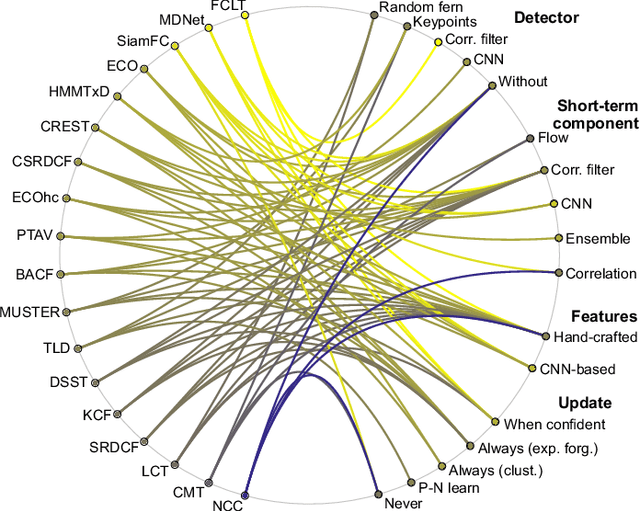
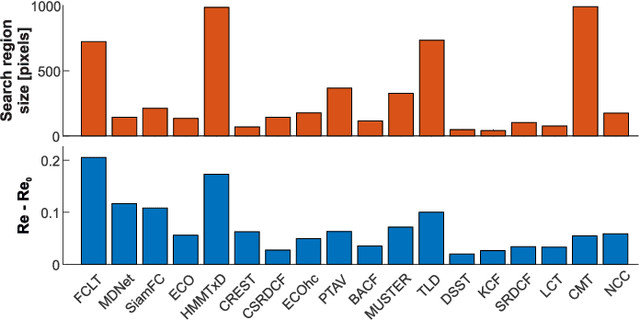
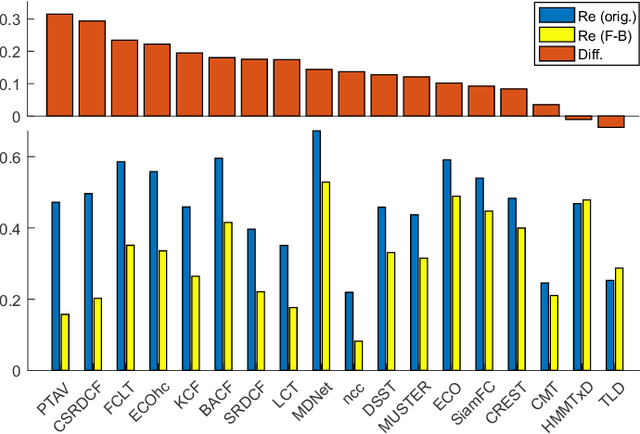
Abstract:A long-term visual object tracking performance evaluation methodology and a benchmark are proposed. Performance measures are designed by following a long-term tracking definition to maximize the analysis probing strength. The new measures outperform existing ones in interpretation potential and in better distinguishing between different tracking behaviors. We show that these measures generalize the short-term performance measures, thus linking the two tracking problems. Furthermore, the new measures are highly robust to temporal annotation sparsity and allow annotation of sequences hundreds of times longer than in the current datasets without increasing manual annotation labor. A new challenging dataset of carefully selected sequences with many target disappearances is proposed. A new tracking taxonomy is proposed to position trackers on the short-term/long-term spectrum. The benchmark contains an extensive evaluation of the largest number of long-term tackers and comparison to state-of-the-art short-term trackers. We analyze the influence of tracking architecture implementations to long-term performance and explore various re-detection strategies as well as influence of visual model update strategies to long-term tracking drift. The methodology is integrated in the VOT toolkit to automate experimental analysis and benchmarking and to facilitate future development of long-term trackers.
Now you see me: evaluating performance in long-term visual tracking
Apr 19, 2018

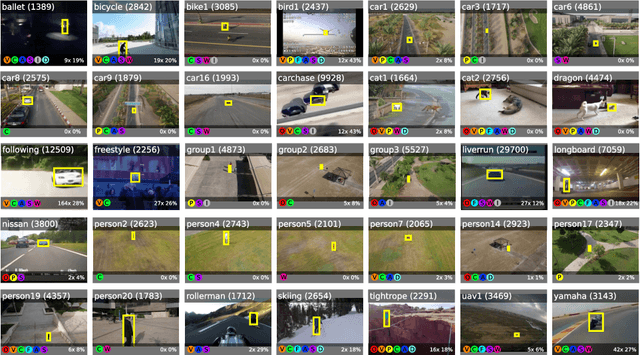
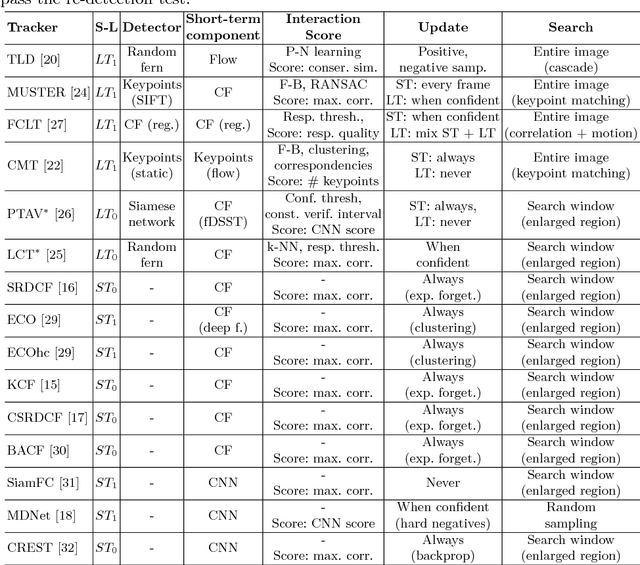
Abstract:We propose a new long-term tracking performance evaluation methodology and present a new challenging dataset of carefully selected sequences with many target disappearances. We perform an extensive evaluation of six long-term and nine short-term state-of-the-art trackers, using new performance measures, suitable for evaluating long-term tracking - tracking precision, recall and F-score. The evaluation shows that a good model update strategy and the capability of image-wide re-detection are critical for long-term tracking performance. We integrated the methodology in the VOT toolkit to automate experimental analysis and benchmarking and to facilitate the development of long-term trackers.
Discriminative Correlation Filter with Channel and Spatial Reliability
Jan 17, 2018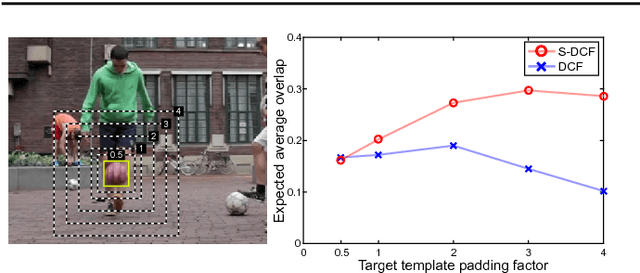



Abstract:Short-term tracking is an open and challenging problem for which discriminative correlation filters (DCF) have shown excellent performance. We introduce the channel and spatial reliability concepts to DCF tracking and provide a novel learning algorithm for its efficient and seamless integration in the filter update and the tracking process. The spatial reliability map adjusts the filter support to the part of the object suitable for tracking. This both allows to enlarge the search region and improves tracking of non-rectangular objects. Reliability scores reflect channel-wise quality of the learned filters and are used as feature weighting coefficients in localization. Experimentally, with only two simple standard features, HoGs and Colornames, the novel CSR-DCF method -- DCF with Channel and Spatial Reliability -- achieves state-of-the-art results on VOT 2016, VOT 2015 and OTB100. The CSR-DCF runs in real-time on a CPU.
FCLT - A Fully-Correlational Long-Term Tracker
Nov 27, 2017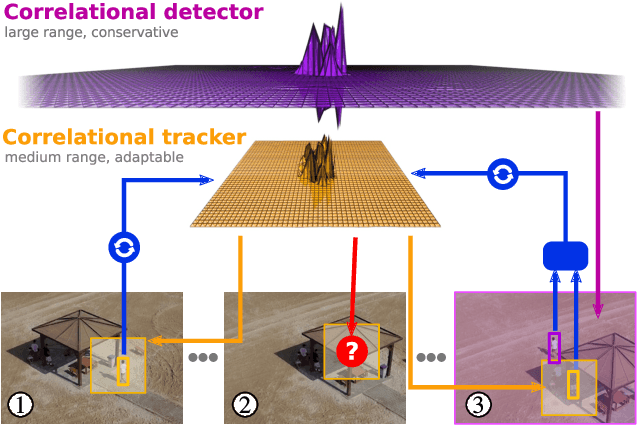
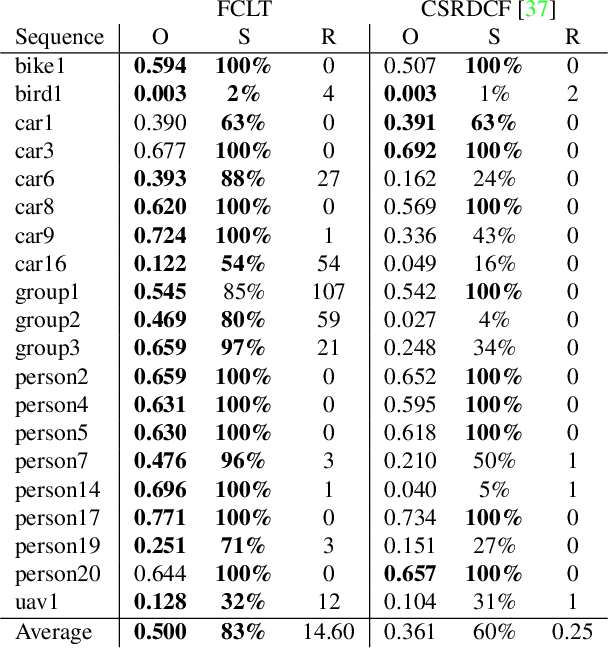
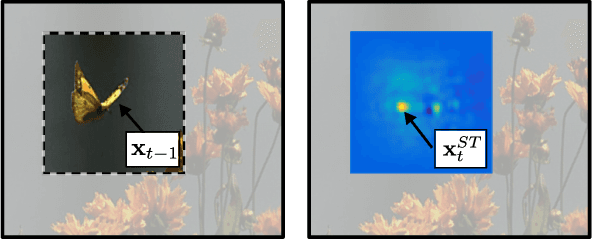
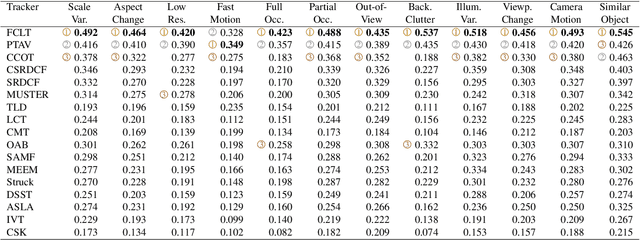
Abstract:We propose FCLT - a fully-correlational long-term tracker. The two main components of FCLT are a short-term tracker which localizes the target in each frame and a detector which re-detects the target when it is lost. Both the short-term tracker and the detector are based on correlation filters. The detector exploits properties of the recent constrained filter learning and is able to re-detect the target in the whole image efficiently. A failure detection mechanism based on correlation response quality is proposed. The FCLT is tested on recent short-term and long-term benchmarks. It achieves state-of-the-art results on the short-term benchmarks and it outperforms the current best-performing tracker on the long-term benchmark by over 18%.
 Add to Chrome
Add to Chrome Add to Firefox
Add to Firefox Add to Edge
Add to Edge